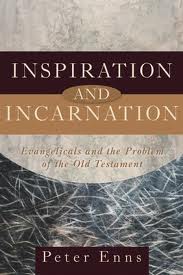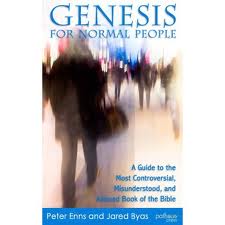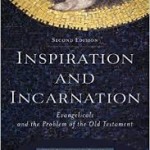 Rachel recently posted the second part of her five-part review of my 2005 book Inspiration and Incarnation: Evangelicals and the Problem of the Old Testament. The first part can be found here.
Rachel recently posted the second part of her five-part review of my 2005 book Inspiration and Incarnation: Evangelicals and the Problem of the Old Testament. The first part can be found here.
What I appreciate about Rachel’s review is that she gets it–she understands what I am saying and why I am saying it. She is not alone in that regard, but I am still miffed at how many people have read in the book things I never said or taken it in directions I never envisioned.
In this post, Rachel tackles the chapter on the Old Testament and ancient Near Eastern myth. Ever since archaeologists began unearthing the mythic stories of primordial time of Israel’s neighbors, namely Mesopotamia, Egypt, and Canaan, all people who take the Bible seriously have had to think of how Genesis 1-11 fits into this context.
The horse is not only out of the barn, he’s out of the county.
The bottom line is that Genesis 1-11, when viewed in its ancient context, is clearly not prepared to provide an account of history. Rather, the ancient Israelites were talking about their God in the categories available to them. To be sure, those categories are not simply adopted but also transformed to tell the story of Israel’s God and why Israel should worship that God rather than the gods of the other nations, a constant source of temptation.
But–and this is the point too often missed–morphing those ancient mythic stories is not a setting aside of the idea of myth as if to say “we have risen above such nonsense.” The Israelites wrote as ancient people, and their argument for why Yahweh is above all the others gods (see, for example, Psalm 95) only worked because of the shared mythic categories between Israel and her neighbors.
Finally, it continues to perplex me how adamant some are to distance the early chapters of Genesis from ancient myth. For one thing, it is a bizarre logic to think that every other ancient culture was replete with origins myths, but somehow, Israel rose above it all to provide an historical account.
Also, the presumption is made that “the God of truth” would never stoop so low as to employ myth. But an incarnating God does the very thing we might not expect: he let’s his children tell the story. Genesis 1-11 talks about God from the point of view of ancient Israelites. If that’s what God wanted to do, who are we to say otherwise?
incarnating God does the very thing we might not expect: he let’s his children tell the story. Genesis 1-11 talks about God from the point of view of ancient Israelites. If that’s what God wanted to do, who are we to say otherwise?
Modern readers of Genesis have to mindful to read with ancient eyes, not modern ones. This is one of the key points Jared Byas and I made in our recent book Genesis for Normal People: A Guide to the Most Controversial, Misunderstood, and Abused Book of the Bible.










